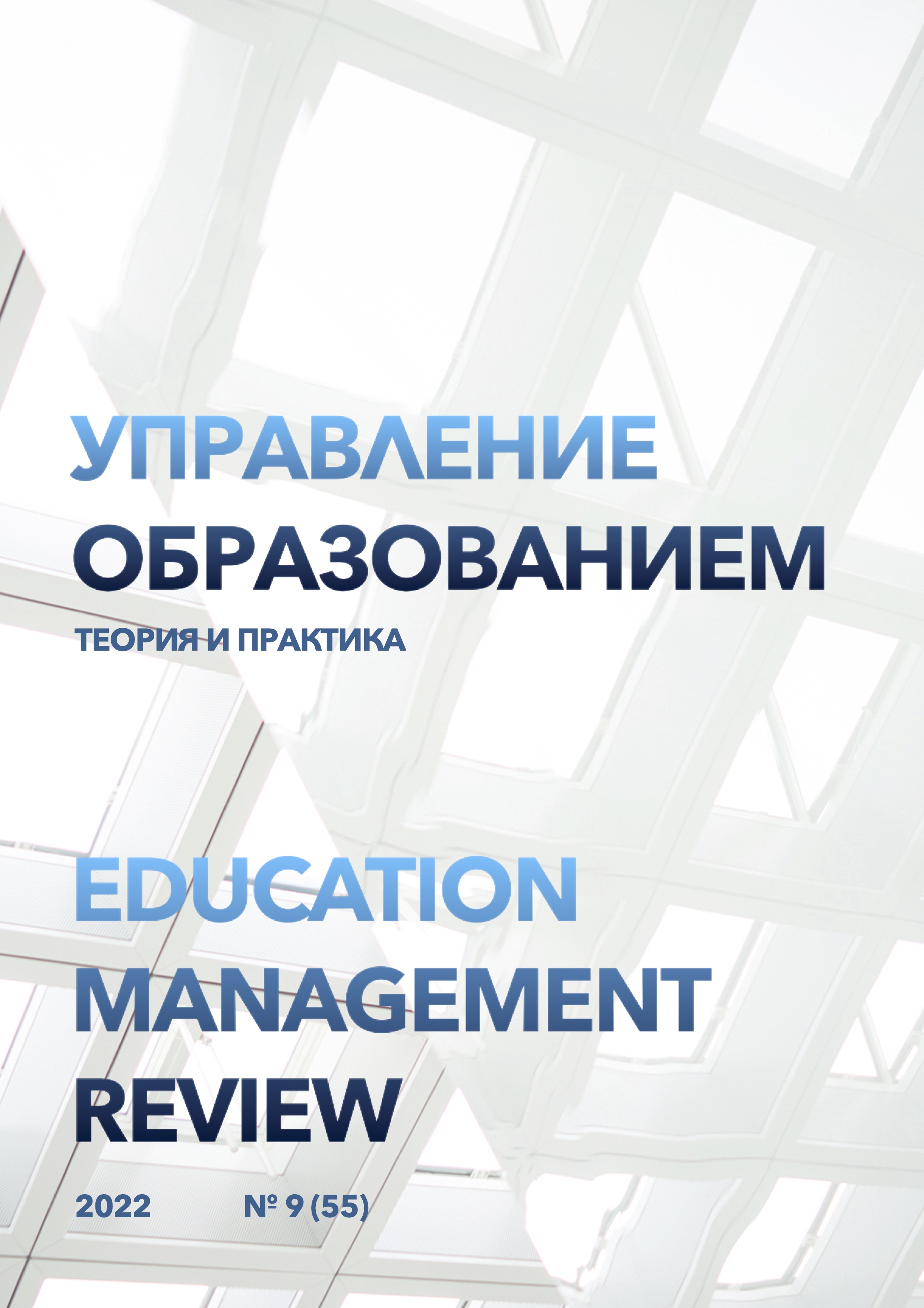Higher education as a factor of Russia’s economic growth: current state and development prospects
DOI:
https://doi.org/10.25726/z7587-5335-1538-pKeywords:
higher education, Russia, development, state, economic growthAbstract
In the modern world, most countries have recognized the role of higher education as a basic component of the knowledge economy and one of the factors of economic development of the state. Moreover, the educational industry itself is becoming one of the leading productive industries in the economy of developed countries and contributes to their competitiveness in world markets. This is confirmed by numerous studies devoted to the analysis of the sources of economic growth of the country and the determination of factors for increasing human capital. However, statistical data on the educational potential of Russia and indicators of its socio-economic development are quite heterogeneous. Thus, in 2020, Russia significantly (by 5 points) increased its position in terms of human capital development, being in 26th place among 130 countries, but the national economy did not grow (real GDP and GDP per capita in US dollars continued to decline). Also, according to the general index of competitiveness of countries, Russia ranked 85th out of 138 countries in 2020, but the data on the state of higher education, as a component of this index, have significantly better indicators than others (33rd place). However, even here there are significant differences between quantitative and qualitative characteristics: in terms of coverage of higher education – 11th place, in terms of the quality of the education system – 56th place, and in terms of the quality of education management – 93rd place. So, having a significant resource potential in the field of higher education, Russia inefficiently uses it for economic and social development. Therefore, it is relevant today to study the modern market of higher education services, its interaction with the labor market, the export of educational services of higher education and the definition of economic aspects of the effective development of higher education.
References
Акиндинова Н., Ясин Е., Авдеева Д., Денисенко М., Кондрашов Н., Чекина К., Яркин А. Сценарии роста российской экономики с учетом вклада человеческого капитала: доклад к XX Апрельской международной научной конференции по проблемам развития экономики и общества. М., 2019.
Арсаханова Г.А Возможности использования антистрессовых технологий в глобализации образования // Управление образованием: теория и практика. 2021. № 3. С. 39–49. https://doi.org/10.25726/m5593-2545-8348-v
Донецкая С. Оценка регионов России по показателям подготовки научных кадров // Университетское управление: практика и анализ. 2017. Т. 21. № 3. С. 66-73.
Иванов С., Сокол-Номоконов Э. Феномен опорных университетов региональной экономики в современной России // Высшее образование в России. 2018. № 1. С. 19-30.
Любимов И. От универсализма к индивидуализму: новые подходы к решению проблем экономического роста // Вопросы экономики. 2019. № 11. С. 108-126.
Макаров А.И. Массовое дистанционное обучение как глобальный социальный эксперимент по разобщению людей // Logos et Praxis. 2021. Т.20. №1. С. 31-35.
Место России на мировом рынке услуг высшего образования / Н.И. Иванова и др. // Экономика, управление и право в современных условиях: сборник статей. Тольятти, 2019. Вып. 26. С. 19-29
Назарова А.В. Дистанционное образование: испытание на прочность // Высшее образование сегодня. 2020. №8. С. 2-7. DOI: 10.25586/RNU.HET.20.08.P.02
Сутырин В.В. Трансформация Восточного партнёрства ЕС после 2014 года // Современная Европа. 2020. № 2(95). С. 111-122. DOI: http://dx.doi.org/10.15211/soveurope22020111122
Успаева М.Г., Гачаев А.М. Инвестиции в инновационные проекты на базе вузов // Управление образованием: теория и практика. 2021. № 4. С. 250–258. https://doi.org/10.25726/w6210-2850-4745-u
Чистохвалов В.Н., Филиппов В.М. Международное академическое сотрудничество: Учеб.пособие. М.: РУДН, 2008. 252 с.
Шатилов А.Б. Деятельность органов государственной власти Российской Федерации по формированию исторических представлений студенческой молодежи в постсоветский период // Гуманитарные науки. Вестник Финансового университета. 2021. № 11(3). С. 15-26.




